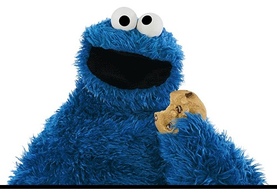 by Kristina Lewis, MD, MPH, SM Imagine biting into your favorite dessert. Think about the sugary, gooey goodness as it hits your taste buds……Feeling hungry yet? More importantly – are you feeling happy? According to a growing body of research on the neuroscience of taste preferences, you probably should be. Decades of animal research, and more recently a number of fMRI studies on humans, have revealed that the brain’s reward circuitry is hard-wired to respond to sweets. These foods make us feel good - and, from an evolutionary standpoint, that makes perfect sense. To our distant ancestors, sweetness usually meant safe to eat or drink, providing a primitive signal about how to avoid ingesting something that was potentially toxic. This system works fine in an environment where naturally-occurring sugars are an occasional treat. Unfortunately, this same wiring can cause problems for us when we’re bombarded with sugar-laden processed foods (read: present day America). In fact, a fascinating recent post in the New York Times described how, for years, specialists have counseled recovering addicts to feed their drug cravings with sugary foods – advice that has resulted in significant weight gain for many of these individuals.
Although most people will admit to a small sweet tooth, for some, the craving for sweets or other unhealthful foods leads to disordered eating and obesity. The term “food addiction” has been coined to describe the pattern of behavior observed in these individuals, and researchers at Yale have developed a questionnaire to look for these problem behaviors, just as a physician might screen for drug or alcohol abuse. The research has generated controversy, with many critics who argue that “addiction” is a concept that cannot be applied to food. Despite the criticisms, it is increasingly clear that for some patients with obesity, addictive behavior plays a role. Recent estimates suggest that up to 15% of adults seeking treatment for obesity may display behaviors that meet Yale’s criteria for food addiction. Identifying patients who are food addicted doesn’t yet have implications for tailoring the treatment of obesity, however, unique approaches for this population may not be too far off. The FDA recently approved a weight loss medication (Contrave) in which a key active ingredient is naltrexone – the same drug that is used to block reward pathways in recovering opiate addicts. In Contrave, naltrexone is combined with bupropion, an antidepressant also used to curb tobacco addiction. Preliminary research on Contrave suggests that it diminishes food cravings and enhances the ability to control caloric intake, resulting in significant weight loss. Moving forward, it will be important to explore how this and other drug therapies, as well as known behavioral approaches to treating obesity, may differentially impact individuals with food addiction. Food addiction appears to be real, and we should take it seriously in our treatment approaches.
0 Comments
Your comment will be posted after it is approved.
Leave a Reply. |
©2017 WeighingInBlog. All rights reserved. 401 Park Drive, Boston, MA




 RSS Feed
RSS Feed

